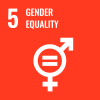Djibouti/Ethiopia – Rekiyah* (not her real name) lived in severe hardship in Ethiopia's Amhara Region when her father fell gravely ill. The mounting cost of his medical bills plunged her family into deeper financial distress. Influenced by friends who had migrated, she decided to travel to Djibouti in search of work, enlisting the help of local smugglers to facilitate her journey. Despite her father’s objections, she was determined to earn money to support her family.
The smuggler charged her 15,000 Birr (approximately 84 USD) with promises of food, water, and shelter along the way. However, the reality was starkly different. Together with others, she endured grueling conditions during their journey through Ethiopia into Djibouti, spending countless nights exposed to extreme hardship.
“One day, I seriously injured my leg, and they [the smugglers] left me behind. I had no choice but to continue alone,” she recounted.
During her arduous journey, Rekiyah fell victim to sexual abuse. Upon finally reaching Djibouti, she discovered she was pregnant. After giving birth to her daughter, local authorities referred her to the International Organization for Migration (IOM) Djibouti for assistance.
IOM provided critical support, including covering her medical bills and securing temporary accommodation for her and her daughter. Efforts are ongoing to trace her family in Ethiopia and reunite them.
Despite the help she has received, Rekiyah’s deepest hope is for an end to the violence and abuse faced by women who migrate.
Fareda* (not her real name), another migrant woman, shares a similar story of hardship and violence. At just 22 years old, the mother of three left her home in Ethiopia, where she earned a meager living selling khat. Her income, though small, was a source of constant conflict with her husband, who demanded a share of everything she earned.
“When I arrived in Djibouti, I had to save money to bring my husband here too. Even after all my hard work, I wasn’t allowed to keep a single cent of my earnings. When he arrived, I was forced to buy him two sewing machines worth 25,000 Djiboutian Francs (about 140 USD). He was aggressive and controlling,” she said.
Her husband began taking her entire salary by force, leaving her without access to her own finances. This is a form of economic violence, defined by the United Nations as the denial of financial resources as a method of abuse or control. While less visible than physical violence, it can be equally damaging.
Unable to endure the abuse, Fareda decided to leave her marriage and return to Ethiopia. With the help of her employer, she was referred to IOM, which provided her and her daughter Hadijah with temporary accommodation.

Fareda* looks out from the balcony of the IOM Transit Centre where she is receiving support, including mental health and psychosocial support, to heal from trauma inflicted upon her at the hands of an abusive husband. Photo: Eva Sibanda/IOM 2024
“All women who leave Ethiopia encounter challenges – whether from their husbands or others. For me, the most important thing was finding a way to overcome my situation,” she reflected.
Many migrant women like Rekiyah and Fareda are supported by IOM to return home. Assistance includes food, mental health and psychosocial support, and post-arrival aid such as non-food items. IOM also facilitates reintegration for some returnees.
As the world marks 16 Days of Activism Against Gender-Based Violence (25 November – 10 December), we stand in solidarity with survivors and condemn all forms of violence against women.
This support is provided under the framework of the Migrant Response Plan (MRP) for the Horn of Africa to Yemen and Southern Africa. However, the MRP remains severely underfunded. For 2024, only USD 19 million of the USD 112 million appeal has been received, leaving critical gaps in assistance for migrants and host communities along the Eastern and Southern routes.
*Names have been changed to protect the identities of returnees.
Written by Eva Sibanda, Media and Communications Officer, IOM Djibouti


